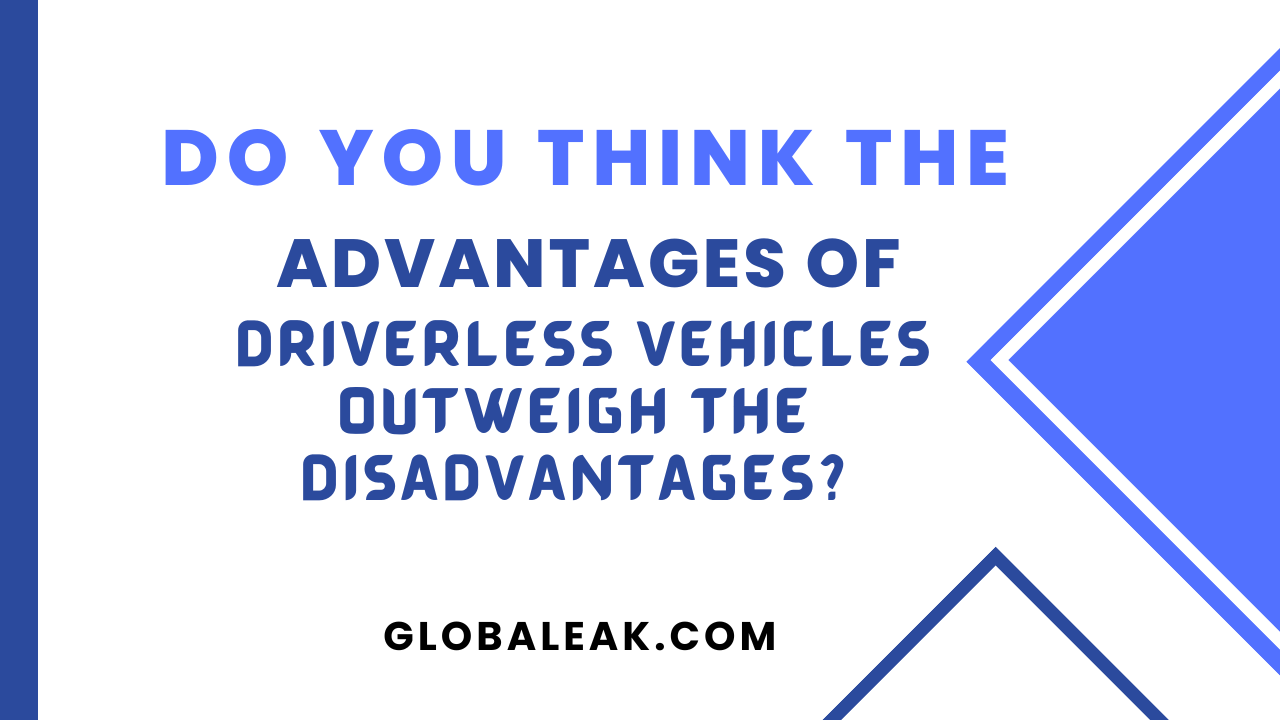In the future, all cars, buses, and trucks will be driverless. The only people traveling inside these vehicles will be passengers. Do you think the advantages of driverless vehicles outweigh the disadvantages?
The promise of driverless technology has long been enticing. It has the potential to transform our experience of commuting and long journeys, take people out of high-risk working environments, and streamline our industries. It’s key to helping us build the cities of the future, where our reliance and relationship with cars are redefined – lowering carbon emissions and paving the way for more sustainable ways of living. And it could make our travel safer.
So far, Singapore has been proactive in embracing autonomous vehicle technology. Trials and pilot projects have been conducted to test the feasibility of self-driving cars in urban environments. Besides, Silicon Valley, including cities like San Francisco and Mountain View, is a hub for many autonomous vehicle companies. China, too, has shown significant interest in advancing autonomous technology. Several cities in China, including Beijing and Shanghai, have seen testing of autonomous vehicles by local companies.
One of the primary arguments in favor of driverless vehicles is the potential for increased safety. Autonomous vehicles can eliminate human errors, which are often a major factor in accidents. They can react faster to changing conditions and avoid risky behaviors such as distracted or impaired driving. The World Health Organization estimates that more than 1.3 million people die each year as a result of road traffic crashes. Automation ultimately could provide that safety and would bring the number of road accidents to a minimum.
Contrary to that, the widespread adoption of driverless vehicles could lead to job losses in the transportation sector, particularly for drivers of taxis, buses, and trucks. Also, autonomous vehicles rely heavily on complex technologies such as sensors, cameras, and artificial intelligence. Technical failures or vulnerabilities could pose safety risks.
More so autonomous vehicles collect vast amounts of data to operate effectively. Concerns about privacy and data security may arise as these vehicles become more prevalent. Lastly, programming ethical decision-making into autonomous vehicles can be challenging. For example, in the event of an unavoidable accident, how should a vehicle prioritize the safety of its occupants versus pedestrians?
Conclusion:
In my opinion, the advantages of driverless vehicles outweigh their disadvantages because these vehicles are entitled to energy-efficient route planning, efficient fuel consumption, and reduced number of traffic mishaps due to human error.
📍 English Language Educator | Blogger & Content Strategist | 7+ Years in Educational Blogging
Nosheen Bashir is a dedicated English teacher and experienced blogger with over seven years of expertise in content creation and educational writing. Passionate about language, literature, and effective communication, she combines her teaching experience with blogging skills to create insightful, research-backed content that helps learners and educators alike.
🔹 Expertise & Achievements:
✔ English Language Education: A skilled educator with years of experience in teaching English grammar, literature, and communication skills to students of varying levels.
✔ Educational Blogging: Running a successful blog for 7+ years, delivering well-structured, engaging content on language learning, writing techniques, and academic success.
✔ SEO & Content Strategy: Specializes in creating high-ranking, authoritative articles that follow Google’s EEAT principles, ensuring content that is both informative and search-friendly.
✔ Student-Centric Approach: Committed to making English easier, engaging, and accessible, helping readers and students improve their language proficiency.
🚀 With a passion for teaching and writing, Nosheen Bashir is dedicated to crafting educational content that empowers students, teachers, and language enthusiasts worldwide.



![Artificial Intelligence [AI]](https://globaleak.com/wp-content/uploads/2024/03/Artificial-Intelligence-AI-300x300.webp)





